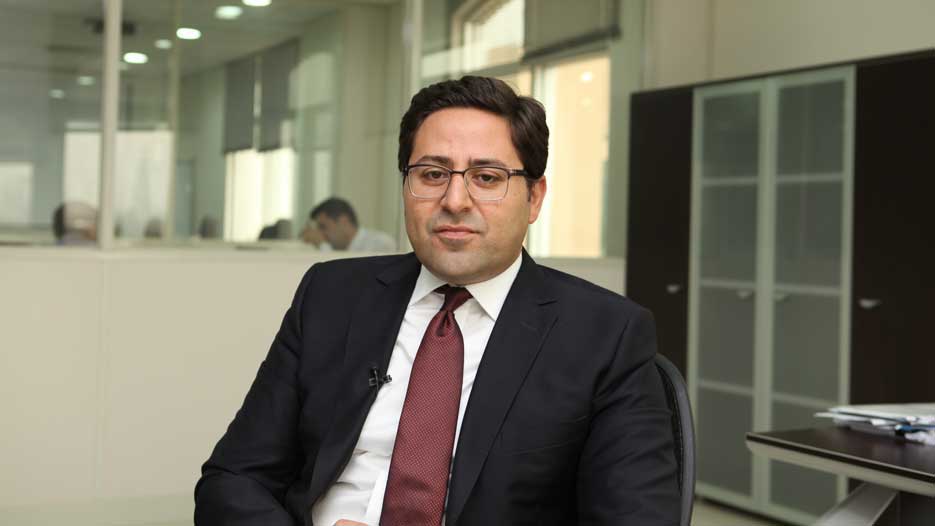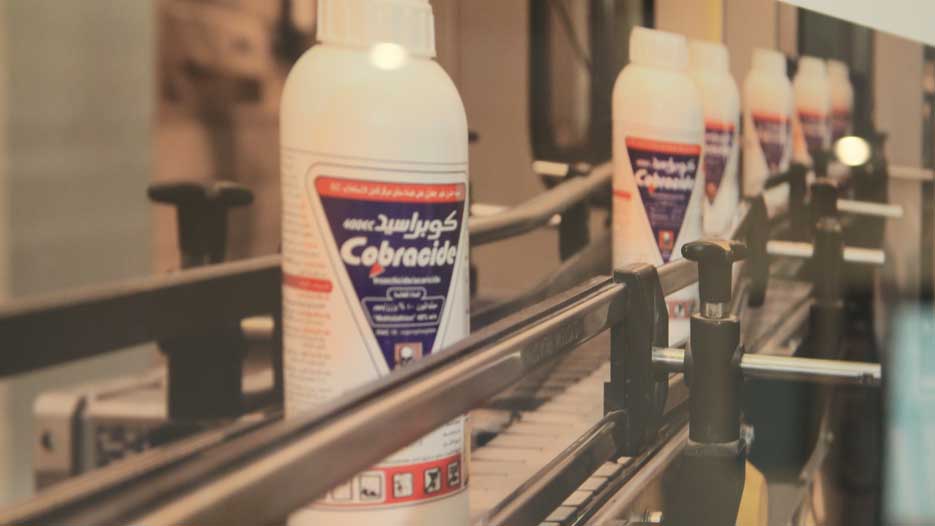Saudi Arabia agriculture: developing high-tech farming
Due to the water scarcity, there has been a drop in the development of the agricultural sector in Saudi Arabia. Over the past 12 years, cereal production in Saudi Arabia has almost dropped to zero. The export of open field agriculture has been banned. Farmers can no longer export open field fruits or vegetables.
Interview with Yehia El Azabi, CEO of Astrachem

Please give us some overview about the Astra industries, your company and your particular field. Can you go a little bit into the history?
Astra Industrial Complex is a part of the AIG conglomerate (Astra Industrial Group). We are known as Astrachem. Our company was founded in the late 80s and we specialize in the agriculture sector and partially the chemical sectors. We cover the needs of farmers in over 25 countries.
We provide them with fertilizers, pesticides, seeds and plastic. We are present in over 12 countries. Our manufacturing units are in Dammam – Saudi Arabia, and Turkey. We have presence in over 25 countries, mainly in the MENA region, Uzbekistan, Ukraine and parts of Africa.
What are future prospects of the agricultural sector or the industry in Saudi Arabia? Do you see any positive developments?
Due to the water scarcity, there has been a drop in the development of the agricultural sector in Saudi Arabia. Over the past 12 years, cereal production in Saudi Arabia has almost dropped to zero. The export of open field agriculture has been banned. Farmers can no longer export open field fruits or vegetables.
But the direct result of this is that more attention is being paid to high-tech agriculture, where you can have farm in greenhouses. So, in the next five years a lot of projects are coming up for greenhouses, indoor farming. We have faced some difficulties, because of a 40% drop in the size of arable land. There was a complete stop in this area since 2008 to 2012. Now we are over this crisis and are geared to start with high-tech farming.
In which crop can Saudi Arabia be competitive in the agriculture sector?
There was a time when Saudi Arabia was exporting cereals and wheat to other countries, but today it is strong in a few main crops that can be exported. Saudi Arabia has also opened investments options in large projects. It is now open to invest in countries like Sudan and Egypt, Ukraine, where they can be involved in the farming of alpha alpha, wheat, which uses up most of the water in the soil. It could be competitive in this field. In addition to supplying raw material for agriculture, it is very cost-effective to produce in Saudi Arabia.
What are the advantages of producing or doing business in Saudi Arabia as opposed to other countries in your particular sector?
In our sector there are a lot of regulations that control production in Saudi Arabia. Due to environmental issues, these regulations can lead to banning a product that is not banned elsewhere. So, you cannot produce it here and sell it elsewhere. The new labor laws have increased the cost of labor. Other than that, you can easily produce in Saudi Arabia and export to neighboring Asian countries and the MENA region as well.
From the export point of view, is it easy to do business, to produce in Saudi Arabia and export?
Let’s just say that it is getting easier. Our main ports, whether in Dammam or Jeddah, are getting faster and more efficient. It has become very convenient for us to serve the neighboring countries with low freight costs or in countries where we can use the raw materials produced in Saudi Arabia. Saudi still has an edge over other countries. We can use the country to export more in the coming five years.

Tell us about your strategic priorities. How does it fit into the overall strategy of the group?
Our Group, Astrachem, covers most of the needs of the farmers. We find solutions for the farming needs or requirements that are characteristic to each country- be it climate, soil conditions or traditional farming conditions. We provide a holistic solution to the farmers by offering them chemicals, fertilizers, pesticides and seeds.
We make use of our synergies between our facilities in Turkey and Saudi and cover over 25 countries. We are looking forward to go further, go upstream into further production in various other fields. That will serve our customers much faster and in a cost-effective manner. We are always competing against China. So, we are trying to come in between Europe and China as providers of high quality products at reasonable prices.
Are you also producing pesticides?
Yes, in Dammam, Saudi Arabia and Turkey. We are manufacturers as well. We export to 25 countries.
Which is the most important market for you right now?
Saudi Arabia is still our main market. Second comes Turkey, where we have been present for the last 10 years. We have spent 5 years in production at our AstraNova facilities in Turkey. Then comes North Africa, where we cover Egypt, Algeria and Morocco, followed by Ukraine and Uzbekistan. About 2 years ago, we started to export to Vietnam and Taiwan.
Is Asia a market you want to establish yourself?
It’s a huge growing market. We are not talking about China, because it is a continent by itself. But we are focusing on emerging markets like Pakistan, Vietnam and Taiwan, where the perception of Chinese products is not as good as the perception of the Saudi Arabian or Turkish products and so we are more welcomed there. Logistically, it makes sense to export to these countries.
When we talk about the product quality and product perception, is brand Saudi Arabia key?
Over the past 25 years, we have gained awareness of the Saudi brand in pesticides and fertilizers. We have alliances with multinationals. A lot of our products are either aligned with a multinational logo or a multinational company is allowing us to produce their product under their brand name. So, our brand image is pretty much spreading across these countries.
You mentioned about competition from China.
The environmental pressure on China is a valid reason that will help us take part or share a part of their business. We cannot compete with China, be it with reference to cost or with reference to quantity. They are simply too big. However, we do feature better in markets where China has not made an impression in, especially in pesticides, which is something that is very critical and health-oriented. In this part of the world, people are more focused on buying European products only. This is where we come in second, even surpassing Chinese products. We see some future in this area. We can share a part of China’s export market.
Can you tell us about your growth figures, profitability and some of your key financial ratios?
We are not in a position to give details about the figures by itself, but every year, we are growing at a rate of double digit figures.
Is this because of your new market, or because Saudi Arabia is consuming more products?
Local versus export ratio is 50:50. A lot of it is coming from the different variety of products that we are introducing and producing every year. There are some key products that we excel in in Saudi Arabia. We are recognized in the governmental organizations. It is a mixture between things. New markets will add value to us as well. But logistically, it has to make sense.
We cannot export to very far off countries, but we would be the first to be in places where there is a niche for our products. Our overall turnover comes from mixed fields. It’s 50% from Pesticides, 40% from Fertilizers and the rest is Seeds and the other products.
Tell us more about innovation and differentiation. There are a lot of companies offering the same services and same products as you are. What makes you really different from them? What qualities say that you have competitive edge over them?
Our quality is well recognized in the market. We have maintained the same quality for the past 25 years. So, there is brand recognition. We never compromise on the quality. We are always trying to improve our quality. What we do differently is that we tailor-make our products to suit our customers. We offer a so-called “one-stop shop”, where the farmers can get all their needs from one place. There are not many companies that offer all these under one umbrella. Usually, it is either a fertilizer company, or a pesticide company or a seed company. We are one of the few that produce all these under one umbrella with over 400 products that we produce. The farmer can completely rely on the quality of the products that we offer and can get comfortable from purchasing it from one place.